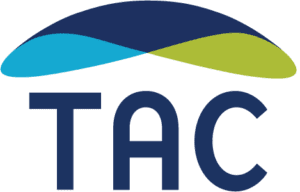Welcome!
Please enjoy our first quarterly newsletter from the TAC Systems Alignment Innovation Hub, where you can find the latest news from our Peer Learning Network, Free Technical Assistance & Consultation Services, and Tools, Guides, & Resources projects. Join our mailing list to receive future issues, along with other announcements and opportunities!
Peer Learning Network
View the entire Peer Learning Network Session #1.
Launched in April, the Peer Learning Network is a facilitated forum for practice-based organizations working to access, develop, and lead research and implementation of systems alignment strategies for racially and socially marginalized communities, informed by their culture, needs, priorities, and values. Open to all, these monthly sessions foster a community of practice among like-minded organizations to learn about successful partnerships and initiatives that are rooted in racial justice and lived expertise. Knowledgeable presenters (like Thomas Cotton of the Redemption & Advancement Alliance, featured in the clip above) share their perspectives, while wide-ranging discussions and breakout groups bring in the knowledge of community-based participants from across the U.S. on such research topics as:
- Theories of change
- Logic models
- Transformative approaches to systems alignment
- Community resilience
- Equity between academic and community-based partners
A regular feature of PLN sessions is “Do It for the Culture,” in which participants share a song, poem, or story to help ground our conversations in the powerful community traditions of group members.
All sessions are recorded to watch and share, with the slide decks available to download.
New Opportunity!
On October 5 at 2:00 pm ET, please join us for Peer Learning Network Community Hours, an interactive, self-directed space for PLN members to bring forward issues they are facing or work they want to accomplish. Facilitated by the SAIH technical assistance team, Community Hours offer a safe space to ask questions and further develop ideas related to systems alignment projects and interventions. Learn more and register for an upcoming session.
Tools, Guides, & Resources
We are delighted to announce the release of the SAIH Data Sources Directory! This is a catalogue of mostly free health- and equity-related metrics at the national, state, and county levels. Organizations can compare their own state or county to others — and to national benchmarks — to demonstrate the need for services in their catchment areas, and to show changes over time in metrics relevant to the goals and objectives of their programs.
Coming Soon…
We will soon release a guide on how to develop a logic model. Logic models are widely used tools for program planning and evaluation study design, and a convenient way to explain a program’s anticipated goals and objectives to potential funders.
TA & Consultation
SAIH provides free technical assistance and consultation services on aligning health, public health, and social service systems to serve racially and socially marginalized communities. We can help your organization to:
- Identify partners for ongoing systems alignment efforts
- Prepare systems alignment strategies for research-testing
- Use existing research to achieve alignment within your own setting
- Improve community engagement strategies to further co-create solutions with racially and socially marginalized communities
- Develop systems alignment strategies to address structural racism and other forms of oppression
To learn more about these services or schedule a consultation, please contact SAIH at [email protected].
The Systems Alignment Innovation Hub (SAIH) helps medical, social service, and public health providers in low-income and BIPOC communities to dismantle inequities and improve health and well-being for all. SAIH is operated by the Technical Assistance Collaborative’s Racial Equity Action Lab with support from the Human Services Research Institute (HSRI), and is supported by the Robert Wood Johnson Foundation’s national Systems for Action Research Program.


